Opinion about the current position of the 'corporation of good' in the hardware market …
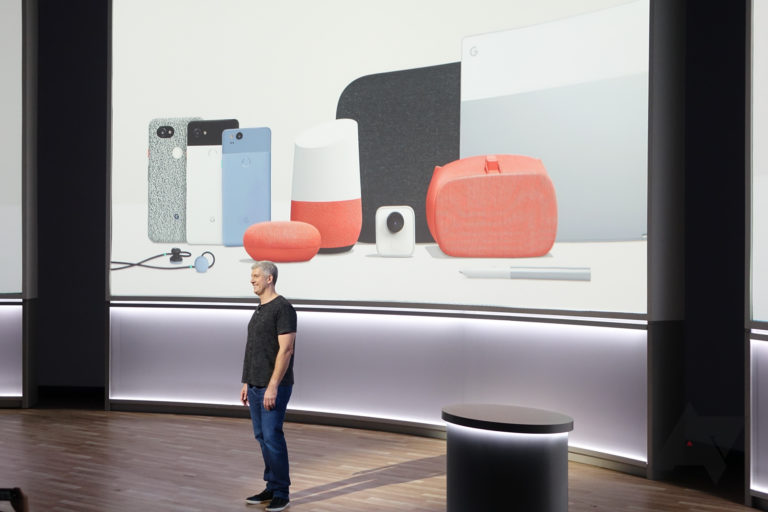
Original material
Let's go back five years and take a look at Google. If I had told you then that Google would become one of the world's most important manufacturers of consumer electronics, I would have been laughed at.
Think back to 2012: Google announced the Nexus 4 smartphone based on Android 4.2 Jelly Bean, as well as the Nexus 10 tablet. Six months earlier, at the Google I / O conference, the company introduced the Nexus Q, a device that was supposed to be a kind of smart entertainment center. However, it was never launched on sale. They asked for $ 300 for Q, and the device itself did not prove its potential, and if you consider the fact that the initiative Android Home failed a year before, then Google's ambitions for a 'smart home' were not supported by anything. By analogy, efforts to enter the 'smart TV' market did not lead to anything, and at that time the conclusion was obvious: Google is better at 'riveting' phones and tablets showing not the highest sales for developers and enthusiasts. But Google didn't stop at just smartphones and tablets. And despite many setbacks, this perseverance has paid serious dividends.
Step 1: Chromecast
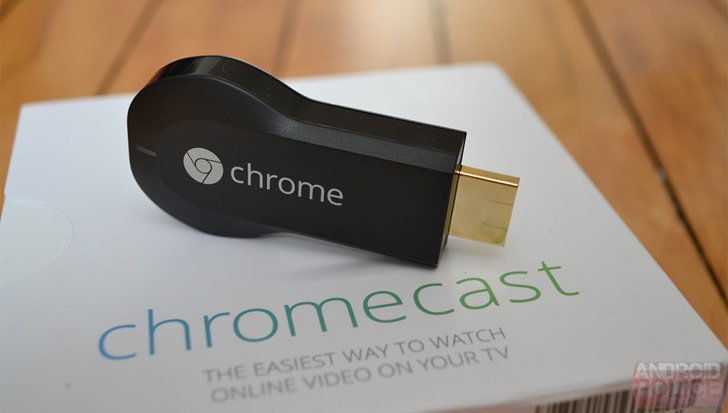
In mid-2013, when Google announced the Chromecast, even our first glance was optimistic: a good thing. A little whistle for $ 35 that could replace a smart TV and pull browser tabs off a laptop thanks to the power of Chrome OS and Android was just that slightly tricky but problem-solving device that millions of consumers needed. And Google has made its device even more powerful.
Since its launch in 2013, the standard Chromecast has undergone only one revision, in parallel with the launch of the Ultra HD version last year. But in the case of Chromecast and other devices with similar functionality (Smart TV, Google Home), Google claims 55 million units sold. Quite a bit of.
It's unlikely that Google predicted a similar success for the Chromecast. But its incredibly budget-friendly positioning and high level of cross-device interoperability (Android, iOS, any device with a Chrome browser) in retrospect made it a win-win. With this little gadget, Google has paved the way into millions of living rooms and bedrooms, clearing the way for broader ambitions for a smart home. The release of content on TV was just the beginning, which, however, became prophetic.
Step 2: Google Home
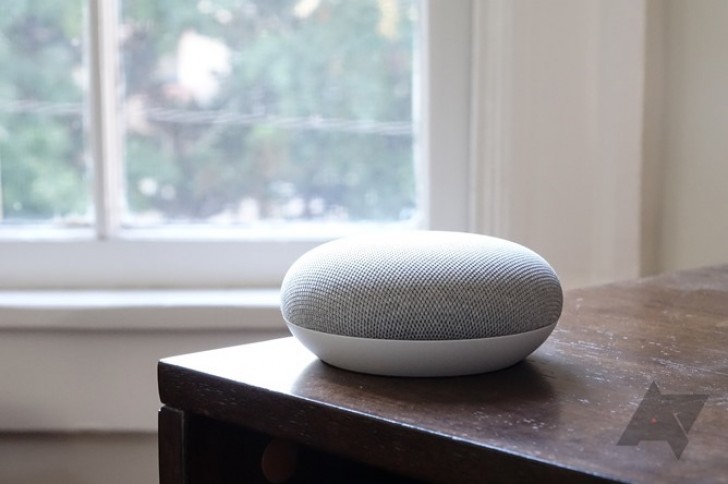
After Google announced Home and the first Pixel smartphone last year, many said the company is trying to catch up with Amazon with its line of Echo speakers, which has been in soft launch since mid-2014 and entered the market a year later. . Thus, Amazon and Alexa's growing skillset have outpaced Google by two years. Google, however, launched Home with two distinct advantages: the speaker worked like a Chromecast but for audio content, and it supported Google Assistant, which had more features and, more importantly, more access to personal information, which Alexa had never dreamed of.
Google soon realized that users could be confused by a speaker with support for streaming data to another device and a Chromecast device, both of which can be controlled from the Chromecast app. Therefore, the latter was renamed to Google Home, which became a kind of signal of the transition to the Home brand. It is unclear what will become of the Cast brand, but it is clear that users want to create an associative array that uses Google Home to stream content to other devices while Chromecast remains the most recognizable device on the market.
What Google Home succeeded in was to begin the actual merging of the Chromecast and Home devices. All of them are controlled by one application, can be grouped for audio playback. The Google Home app is also the hub for connecting any smart home device linked to your Google account. These devices are controlled by Assistant and the list of supported devices continues to grow. While Alexa is the 'reigning champion' of smart home control, Google is steadily closing the gap. And Google has a significant advantage over Amazon: Assistant is built into millions of Android smartphones as the default solution for search and voice commands. I control my smart plug with my phone almost as often as I do with Google Home, and I have no desire to search for the Alexa app when the Assistant is invoked at the touch of a button.
In my opinion, the Google Home Mini solves the biggest problem of the first generation of Google Home: the device has become affordable enough that you can afford such a purchase. Given the $ 29 holiday sale price, it can be assumed that Google has sold quite a few of these speakers, and that the 55 million Cast-enabled devices will soon approach 100 million. After all, Google's goal is to put Assistant on as many screens as possible. As we can see from the convincing example Amazon Echo Dot, if you want your product to end up in someone's apartment, then a smart speaker with an emphasis on the combination of price and quality is as obvious to buy as Smart TV whistle for $ 35.
Step 3: Nest
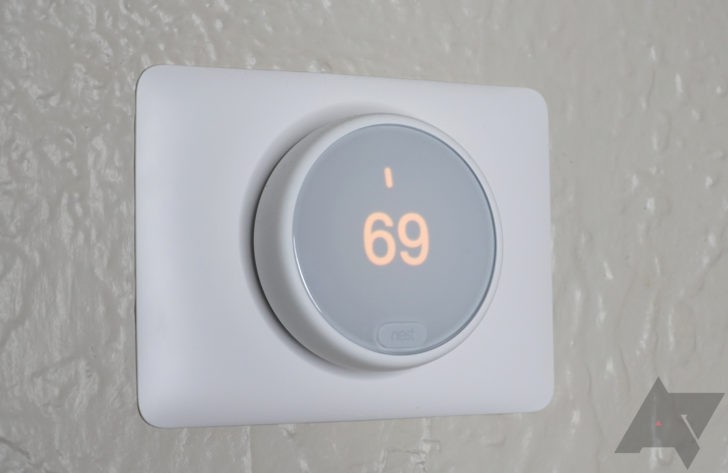
In order to move further in our history, we need to take a small step back. In 2014, Google acquired Nest, known for its 'smart thermostat', for $ 3.2 billion. At that time, it was not completely clear what Google would do with Nest, and even now the situation is not fully clear. But if you want to understand where Google is leading the smart home company, there is one update that was announced during a press conference last year: Assistant integration into smart cameras.
Nest is by far the most famous name in smart home control solutions and the company's thermostats are very popular. Their new security system is very expensive and unfortunately does not support Assistant, but I would not be surprised if this situation changes with the next software updates. Either way, you can rest assured that future Nest products will have tighter integration with Google Assistant and the Google Home app. Rumor has it that Google wants to accelerate this process by joining the hardware teams from Nest and Google.
As the Nest climbs into home security systems and doorbells, while keeping the traditional thermostat and camera business in mind, Google Assistant will be able to learn more and answer more correctly. Parents, can you imagine asking 'OK Google, where is [child's name]?' in response, the Assistant will show a live video from the location of the child in the house or will it show a point on Google maps? Yes, creepy, but don't get me wrong. Without a doubt, even ten years ago, a scenario like this was on the edge of Star Trek technology that is already available to us today. Insanely cool.
Step 4: merge
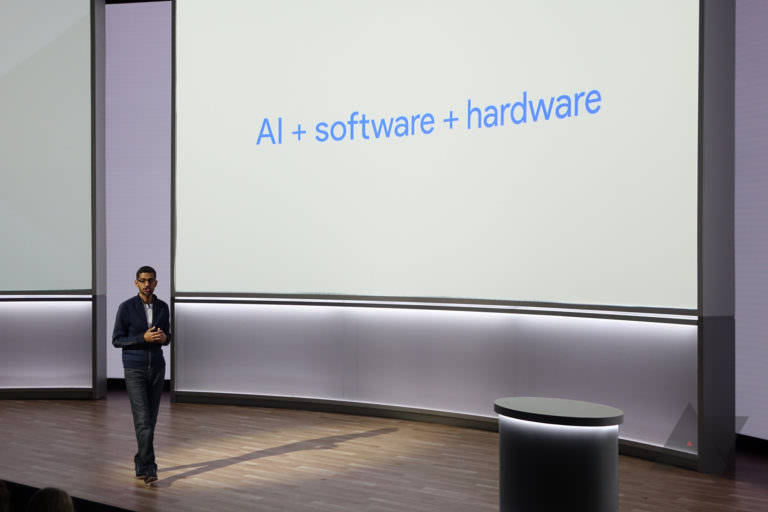
Google has made it clear that Assistant will work first and foremost on the company's own hardware. Pixel smartphones were the first to receive Assistant support last year, the first to receive Lens this year, and the Pixelbook is the first laptop to support Assistant. Google clearly expects Assistant to be the driving force behind its products, and looking at the platform's ever-evolving capabilities, that expectation looks good enough.
By building the best solutions for the best smart assistant platforms, Google has been surprisingly successful behind the scenes in the hardware market. The latter is not sold by the company in such quantities as Samsung does with the S8, but when a user with several Home speakers, a pair of Chromecast, the very popular Google Wi-Fi and a Google Nest camera (rebranding is in the air) chooses a new smartphone, then he with a large share chances are he is looking at a company that makes many of the devices he has.
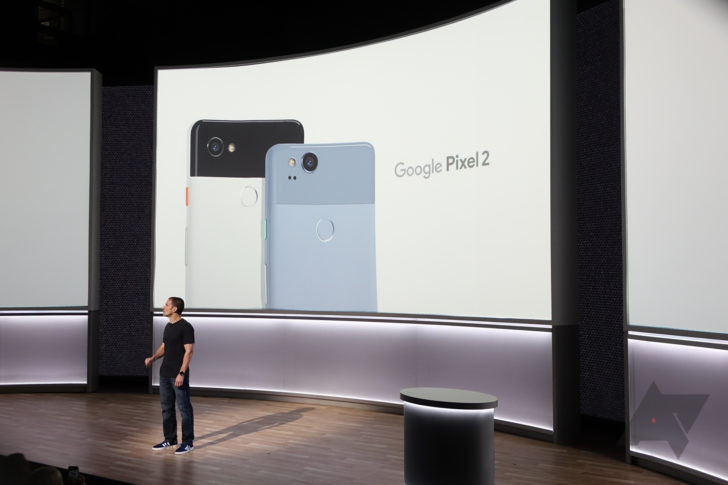
The broader concept of Google's consumer devices is still emerging, and there is still room for improvement. But on top of all the cackle about Google's failure to build a cohesive ecosystem over the years Android, we see the company create hardware quite elegantly on its own terms. This is pretty interesting. This is a company that owns perhaps the most powerful artificial intelligence on the planet, with which we often 'talk' and I wonder more than ever what to expect from Google next.
By David Ruddock
Of course, Google has expanded very widely in its home market, releasing curious devices to compete with Amazon. But for many other markets, the smart home is still news and science fiction. And in this regard, in my opinion, it is worth trying, especially considering that Amazon outside the United States is also not a frequent 'guest'.
Not to say that the Pixel can be considered the benchmark of Google's “iron”, but the same Home is quite good and devoid of “childhood diseases”. There are resources, you just need to direct them in the right direction. And there, you see, Amazon will move.
